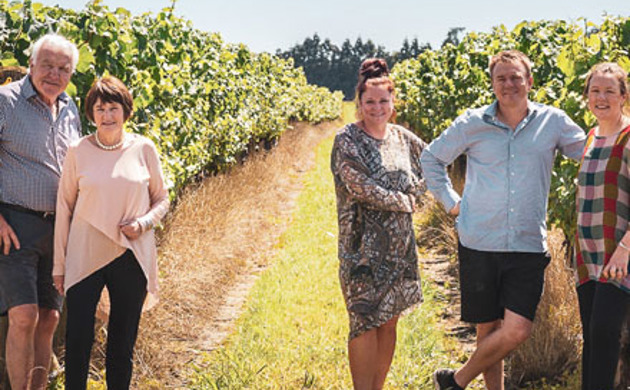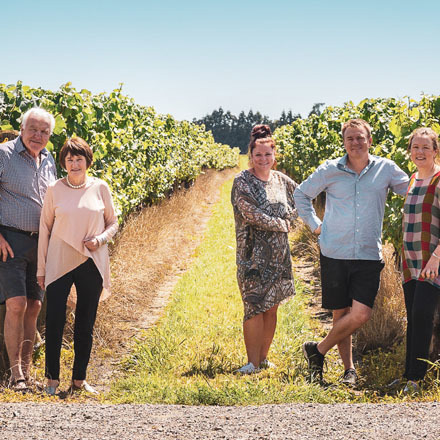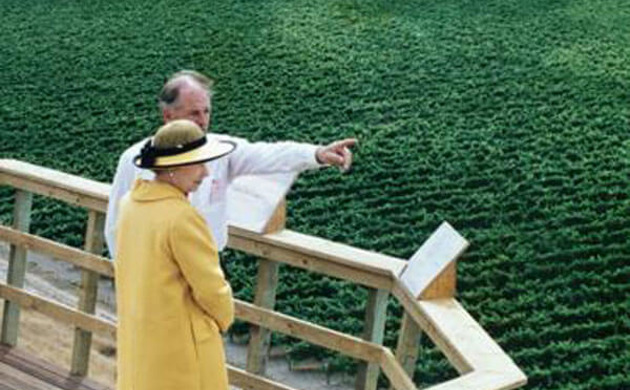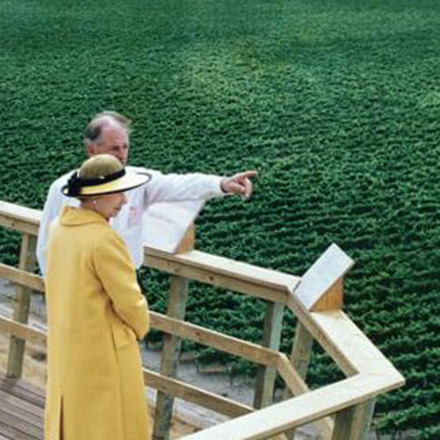Sophie Preece
Ivan Sutherland was a little boy when he got his first taste of rowing, “dragged down” to cox for his big brother on the Wairau River. The Sutherland family farmed right next door to the club co-founded by his grandfather in 1910, “so I guess you could say it was ingrained in me”, says Ivan, who has balanced a lifetime commitment to rowing with four decades in Marlborough’s wine industry.
In 1976, Ivan won a bronze medal at the Montreal Olympics with the New Zealand eight, followed by two wins in World Championships - a silver in the four at Amsterdam in 1977, and a bronze in the eight in New Zealand in 1978.
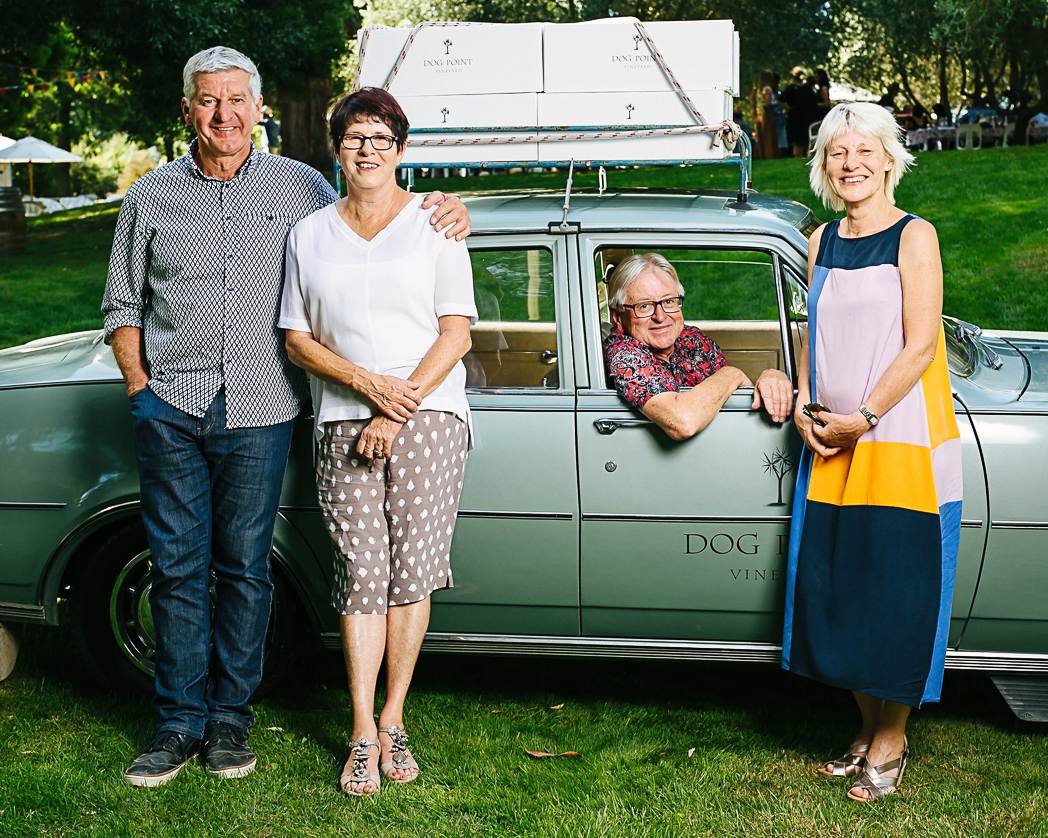
The next year he and his wife Margaret, along with a cousin, Robin Sutherland, bought 52 acres of land on Dog Point Rd for $1,300 an acre, joining a nascent wine industry inventing its rules day by day.
“You learn a certain amount of discipline and commitment with a sport such as rowing,” says Ivan. “It would be fair to say I transferred some of that to the business side of the wine industry.”
Forty years on, Margaret and Ivan’s Ashmore Vineyard, encompassing their original land purchase, is the largest organic vineyard in New Zealand, and the wines of Dog Point Vineyards - founded by Ivan and James Healy in 2002 - are some of the country’s best.
“It’s been a pretty cool journey. Margaret and I feel privileged to be part of it,” says Ivan, who joined Cloudy Bay in 1986 and spent 18 years at the helm of its vineyards.
There were some difficult times in those early days, he says. “I have seen three over-supplies, wine companies unable to pay on time, 21% interest rates, and a government-subsidised vine pull, which was a windfall for some, but not so pleasant for others.”
When phylloxera hit in the mid ‘80s, requiring growers to replant on resistant rootstock, it carried unexpected opportunity, allowing the industry to focus more on suitability of variety, soil type, climate, and rootstock. For Ivan, known for his meticulous record-keeping and a deep respect for research and innovation, it was an exciting time of collaboration and change.
“You look back at all those field days we had. Everyone was so eager to learn. We made some mistakes but you learn by those.”
He has always championed cooperation in the industry, and was a founding member of the Grape Growers Association (now Wine Marlborough) in 1980, and founding chairman, in 2003, of the Marlborough Wine Research Centre board of which he remains a trustee.
“It’s been enjoyable belonging to the industry groups and having collective discussions to come to a unanimous decision on industry initiatives. Not everyone agrees, but you go with the majority and get behind it,” he says.
“This collaboration has happened in all our wine regions and has been an integral part of the success, I believe, of the New Zealand wine industry.”
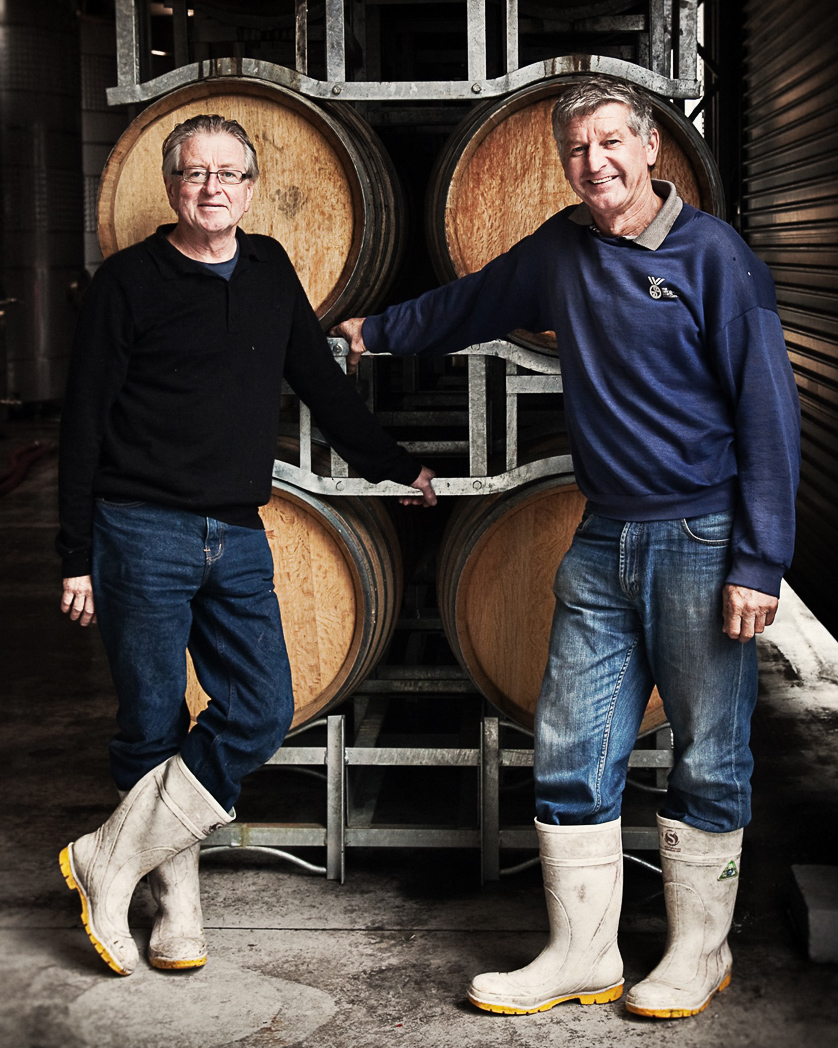
And he’s not about to relax his guard. Last year, Ivan and other key wine industry players launched Appellation Marlborough Wine (AMW), a brand designed to safeguard the global reputation of the region’s wine by protecting its “integrity, authenticity and brand value”.
Under AMW, 100% of the grapes have to come from Marlborough, wine has to be bottled in New Zealand, and cropping levels have to be below certain parameters.
“I have never seen the future in big crops,” says Ivan. As with all major wine regions, there is a range of price points, “but we must not lose sight of quality wine production from quality grapes at controlled cropping parameters. Because you cannot, in my opinion, have absolute quality from overcropped vines”.
It’s necessary for the industry to pull together to ensure the best outcomes for Marlborough’s wine reputation as a whole, he says. “We think we’re big here but we’re not that big when you compare to Champagne or Bordeaux. There’s always been a good collaborative, collective approach and we must make sure we retain that.”
Ivan’s dedication to the industry saw him made a member of the New Zealand Order of Merit in the Queen's Birthday Honours list of 2011, for services to rowing and wine growing. In 2014, he was awarded a Lifetime Achievement Award by the board of Wine Marlborough, he was made a New Zealand Winegrowers Fellow in 2018, and he was awarded the 2019 Viticulturist Award in the Gourmet Traveller Wine New Zealand Winemaker of the Year Awards.
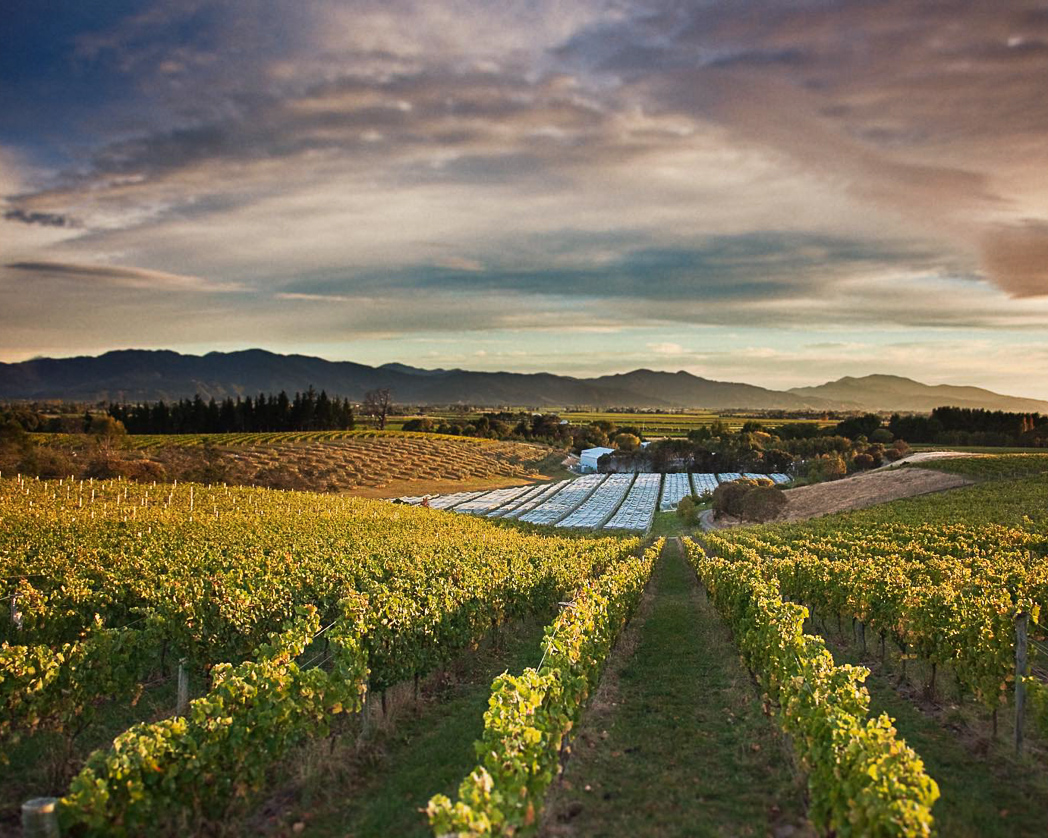
These are just a handful of the accolades earned, including the supreme award for Dog Point Vineyards in the Cawthron Marlborough Environment Awards, recognising the rich biodiversity and environmental care Margaret and Ivan have spearheaded at Dog Point.
All these years on, the industry is in good heart, he told the audience at the New Zealand Wine Awards dinner when named as a Winegrowers Fellow.
“But we have to be mindful that we give our national marketing brand the utmost respect in the production of quality wine in a clean green environment.” That’s going to become more and more important, “because consumers are continually questioning the origins and composition of the products, along with the type of farming regime practised”.
New Zealand’s clean green brand is wonderful to trade on, Ivan adds. “But we have to be far more substantial and credible with that. We can make improvements there."
"Ultimately we want to leave the land and its environs in a vastly improved state, and I strongly believe we have a social and environmental responsibility to achieve this.”
Four decades after Ivan stepped into a brand new industry, inspired by the possibilities, he says there’ll never be a time to stop wondering what’s next, and looking for research, creativity and innovation. “We must always have an open mind moving forward.”
This story was first published in Winepress magazine and is republished with their permission.




